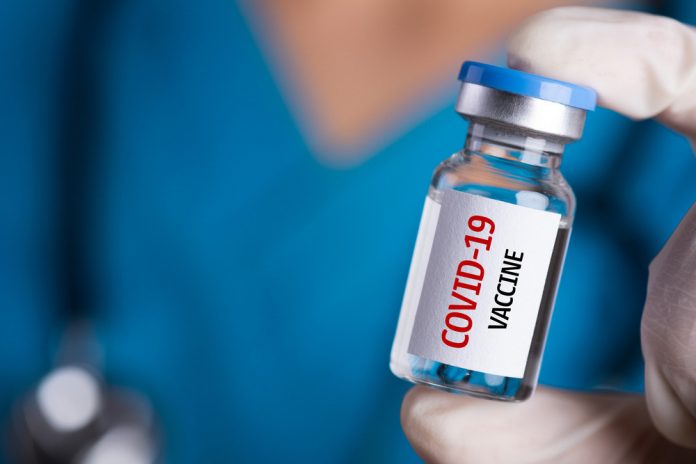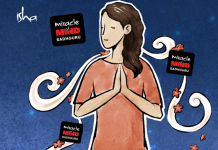The long-waited COVID-19 vaccine is finally available worldwide, although still limited to the various protocols in each country. People are already lining up to receive this vaccine. However, did you know that there may be side effects when receiving this vaccine? Luckily if you are one who might be experiencing the side effects, there are numerous remedies to its side effects.
Here’s what you need to know:
Before Your Shot
If you were hoping to get ahead of the side effects and take painkillers like ibuprofen (Advil) or acetaminophen (Tylenol) before your vaccine, the results will vary. This is because administering drugs into somebody’s system is not part of the trial, which is why your immune system may be compromised. However, if you are taking NSAID (Nonsteroidal anti-inflammatory drug) for conditions such as arthritis or are suffering from a migraine that day and need to take it for pain relief, you are welcome to take medication. To be safe, ask your doctors before you administer these medicine into your system.
After Your Shot
Nausea and Vomiting
This vaccine shot can affect your gastrointestinal system. A volunteer who received the highest dose of Moderna vaccine is reported to feel ‘down and out’ for many hours after getting the shot. Not only that, the volunteer was also reported to experience nausea, abdominal cramps, vomiting, fatigue and fainting post the symptoms. If these symptoms does not subside after a few days, better to report and call your doctor.
Headaches
A sign of the body’s inflammatory response, headaches and mild pain can come after a vaccine shot. This symptom is particularly common, for it is reported to be the second most commonly recorded symptom with the vaccines. CDC (Centers for Disease Control and Prevention) observations also show that the presence of headaches is more common after the second shot. The solution? She suggested people be prepared to ‘take a day off’ or rest a while after getting vaccinated.
Stress, irritability, drowsiness and other systematic reactions may also occur. Statistics also suggest that more than 50% of people who get vaccinated at any time, against any infection experience a mild, moderate level of throbbing headache.
Fatigue
Symptoms like chronic fatigue and exhaustion can bother our day-to-day life, but it’s a sign that that the body is building required protection against the virus. Fatigue can also be accompanied by feelings of chills and minor aches, which could knock a person out. This can be especially dangerous for people above the age of 55, which is why they should be even more careful of this particular symptom.
The solution to this symptom is simply rest and relaxation. Many doctors suggest to avoid scheduling the vaccine shot before a busy day so they can rest in case they get sluggish throughout the day. Moreover, symptoms are often the most pronounced the next day.
Rashes
Rashes, on the other hand, are not the most common side-effects but can sometimes take upto a week’s time to come up. It is suspected that this symptom is more common on those who may be suffering from an allergy, or might be sensitive to the vaccine’s makeup. Hence, consider getting urgent medical help the moment you spot one. Swelling, bleeding, delirium or chronic fainting spells should not be ignored.
Fever and Chills
It should be noted that fever and chills are two of the most commonly reported side-effects with the Moderna vaccine. Luckily, these symptoms go away on its own although the intensity of pain can differ from person to person. As the body starts to produce antibodies, there will also be a rise in inflammatory markers causing low-grade or high fever, accompanied by redness and swelling.
One of the participants who was part of the Moderna trials was reported to break into bone-breaking chills with a fever that went up to 102 degrees Fahrenheit in just a few hours after he was vaccinated. However, he confirmed that the symptoms subsided a few hours after on its own and required no additional medical assistance.
In case you ever break into a fever after taking your shot, the CDC recommends people to drink lots of fluids, dress lightly and take acetaminophen (Tylenol). It’s safe to take the acetaminophen after the vaccine as there is no reports that this will interrupt the immune response.
Soreness
If you are one which develops soreness such as low-intensity muscle pain and joint aches, then it’s good news! These are signs that your body is developing an immune response to the vaccine. That said, results vary. Some people don’t experience soreness at all while some have it throughout their entire body. Yet among the symptoms, soreness is one of the most common side-effects, reported in over 43% cases.
To treat the pain, the Centers for Disease Control and Prevention suggests applying a cool, wet washcloth to the site of the injection. Otherwise, doctors also recommend using warm compresses, drinking lots of water and resting. A warm bath with Epsom salts can help, too.
You can also try to move your arm as staying still will just increase muscle soreness while movement in your arm increases blood flow and exercises that muscle. One tip is to get the shot on your dominant arm rather than the non-dominant arm, because you will be more likely to move it throughout the day, which helps minimize any soreness. If none of that works, then you can take anti-pain medications and pain relievers.
What to Do if Your Side Effects Persist or Get Worse
According to the CDC, these side effects are supposed to go away after a while.
However, if the redness and tenderness in your arm gets worse after 24 hours or the side effects from the vaccine don’t get better and go away after a few days, then call your doctor.
You should also call if you have a high fever (higher than 103 degrees F) for three days in a row or are experiencing breathing issues, chest pain and wheezing at any time. These are not expected side effects and require medical attention.





